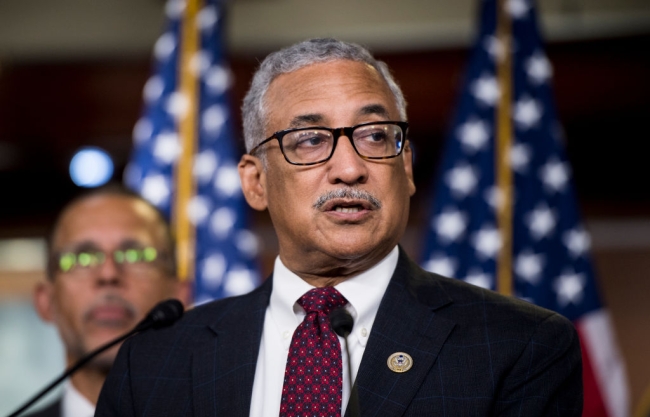You have /5 articles left.
Sign up for a free account or log in.

Representative Bobby Scott, a Virginia Democrat, would be line to lead the Education Committee should Democrats win control of the House.
Getty Images
For much of the past two years, congressional Democrats hoping to have a say in federal higher ed policy have had the door repeatedly slammed in their faces.
They were shut out of the drafting of the PROSPER Act, a House Republican plan to reauthorize the Higher Education Act that was later passed out of committee on a party-line vote. And they’ve repeatedly complained that requests for information from the Education Department on federal programs have gone ignored.
Their voices could begin to matter a lot more soon. Democrats are widely expected to wrest control of the House of Representatives from the GOP in November -- if consistent polls showing large leads are to be relied upon -- which would give Representative Bobby Scott, currently the ranking Democrat on the House education committee, the ability to hold hearings and issue subpoenas to Education Secretary Betsy DeVos and her top aides.
If that happens, the best indicator of the Democrats’ priorities may be the slate of programs they’ve already been scrutinizing during DeVos’s tenure -- implementation of student loan rules like borrower defense to repayment and gainful employment; accountability for accrediting organizations; protections for victims of sexual misconduct on campuses; and alleged conflicts of interest among administration officials.
With Republicans in control of Congress and the White House, opportunities to question the secretary or other top department officials have been limited. But the committee has significant oversight powers, said Spiros Protopsaltis, the director of George Mason University’s Center for Education Policy and Evaluation and a former staffer at the Education Department and in Congress.
“Oversight is a principal responsibility of Congress,” he said. “It’s not just that they have a right to do it. They have a responsibility.”
Democrats could look to fill that role by probing the rationales for the department's most significant decisions over the past two years. The Education Department has spent much of that time rolling back regulations issued by the Obama administration.
Lawmakers have filed public comments on some of those moves like the overhaul of gainful employment and borrower defense. With control of the education committee, they’ll likely put a particular focus on those rules already on the books, said Julie Peller, executive director of Higher Learning Advocates.
“I imagine the committee would pay particular attention to whether those rules are being implemented,” she said.
Programs like Public Service Loan Forgiveness are also likely to get a look from congressional Democrats. Although few borrowers were expected to qualify for the benefit this year, the high number of rejections revealed significant misinformation and confusion about the process.
A Government Accountability Office report last month put some of the blame on the department, finding that it had failed to communicate.
Scott was quick to highlight the findings of that report, suggesting the Trump administration’s handling of PSLF could receive additional scrutiny of House Democrats should they take the gavel of the education committee.
Some Republicans have vented that congressional Democrats have already put DeVos and her staff through the wringer. Jeff Andrade, a GOP lobbyist and former education committee and department staffer, said administration contacts complain frequently that lawmakers have created serious obligations for department officials.
“So if the Democrats manage to gain a slim majority in the House next year, I don't think it matters very much in terms of oversight,” he said. “What are they going to raise hell about … that they are not already raising hell about now?”
He said he doesn’t expect the Trump administration to change how it handles requests from Congress but suggested department officials would be wise to use hearings to highlight what he said were the failings of the Obama administration on higher ed programs.
Democrats on the committee will have recent examples of committee leadership to look to for models. Tom Harkin, an Democrat and former Iowa senator, as chairman of the Senate education committee led a two-year investigation of the for-profit colleges that concluded in 2012 and questioned whether federal aid was well directed to many institutions in the sector. It also faulted federal law and lax oversight by states and accreditors for the persistence of many poor-performing institutions.
And George Miller, a California Democrat, as chairman of the House education committee from 2013 to 2014 probed sexual abuse in the USA swimming program.
That kind of legislative oversight is important to the proper functioning of government, said Michael Zola, the vice president for government relations and policy analysis at the American Association of State Colleges and Universities and a former Miller staffer.
He said Democrats will likely make every attempt to pursue oversight in a bipartisan manner. But Zola said any officials who have received requests for documents or information from congressional Democrats should expect renewed interest in those inquiries should the majority change.
“The exact same letter from the majority has a completely different tenor to it,” he said.








